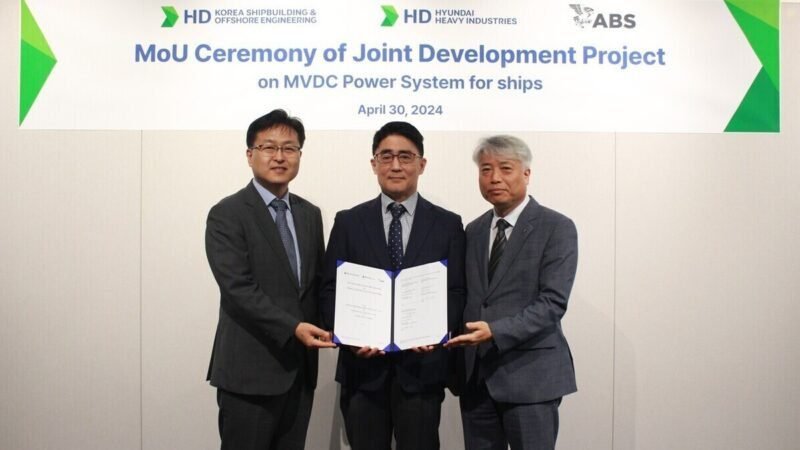ABS, HD Korea Shipbuilding & Offshore Engineering Co (HD KSOE), and HD Hyundai Heavy Industries (HD HHI) have signed a memorandum of understanding to collaborate on the technical feasibility of medium-voltage direct current (MVDC) power systems for ships. The agreement will involve design assessment, new technology qualification, and the development of rule guidance to ensure compliance with technical requirements, safety standards, and regulations. ABS senior vice president and chief technology officer, Patrick Ryan, emphasized the importance of alternative energy options, particularly electrification, in helping the shipping industry achieve net zero emissions by 2050.
Byoung-Hun Kwon, head of the electrification center at HD KSOE, highlighted the necessity of MVDC technology for electrifying and unmanned large ships and ship systems. He expressed confidence in leading the large ship electric propulsion market by expanding their technology from low-voltage to MVDC power systems. This collaboration is part of a longstanding partnership between ABS and Hyundai, which includes projects such as ammonia carriers and autonomous navigation. ABS recently awarded approval in principle to support the Hyundai Group’s AI-based autonomous machinery and safety management functions in the offshore segment.
The collaboration between ABS, HD KSOE, and HD HHI aims to advance the development of MVDC power systems for ships, with a focus on safety and clean energy. By working together on design assessment and technology qualification, the companies seek to provide clear directives on technical requirements and regulatory compliance. This partnership reflects a commitment to innovation and sustainability in the maritime industry, with a goal of achieving net zero emissions by 2050 through the adoption of alternative energy options like electrification.







